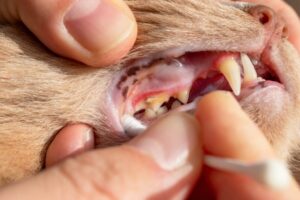-
Call Now
(727) 355-5223 -
Serving Pinellas County
from Dunedin, Florida -
Tuesday - Friday
9:00am to 6:00pm

Cats, like all animals, can require surgery for a variety of reasons. Some of the most common surgeries performed on cats include:
- Spaying/Neutering: This procedure prevents unwanted litters and can also reduce the risk of certain health issues and behaviors.
- Dental Surgery: Cats can suffer from dental problems such as broken teeth, severe tartar, gum disease, and resorptive lesions. Dental surgery can involve cleaning, extraction, or other dental work.
- Foreign Body Removal: Cats are curious creatures and may ingest things they shouldn’t. In cases where the object doesn’t pass through naturally, surgery may be needed.
- Tumor or Mass Removal: Cats can develop benign or malignant tumors that may need surgical intervention.
- Wound Repair and Abscess Drainage: Cats might get injured in fights or accidents, leading to wounds or abscesses that require surgical attention.
- Fracture Repair: Broken bones, depending on their location and severity, might require surgical intervention.
- Eye Surgery: Conditions like glaucoma, cataracts, or trauma can necessitate surgical intervention.
- Bladder Surgery: Conditions like urinary blockages or bladder stones might need surgical correction.
- Gastrointestinal Surgeries: Issues such as intestinal blockages or tumors might require surgery.
- Orthopedic Surgeries: Conditions like hip dysplasia, patellar luxation, or other joint-related issues might necessitate surgery.

Advantages of Trusting Dr. Megan Sawyer to Perform Cat Surgery
- Expertise: Dr. Sawyer is a surgical specialist who has undergone additional years of training specifically in surgery, allowing her to acquire a greater depth of knowledge and skill in surgical procedures.
- Experience with Complex Cases: Veterinary surgical specialists like Dr. Sawyer often deal with more challenging and complicated surgical cases, giving her a broader range of experience.
- Advanced Equipment: Specialists often have access to, or invest in, more advanced surgical equipment suitable for specific procedures.
- Reduced Risk: The additional training and experience can lead to a reduced risk of complications during and after surgery.
- Post-operative Care: Specialists are often more adept at providing post-operative care instructions, recognizing potential complications early on, and addressing her promptly.
- Collaborative Care: In a specialty hospital or setting, surgical veterinarians often work alongside other specialists (e.g., internal medicine, oncology, radiology), ensuring a comprehensive approach to patient care.
- Continuing Education: Surgical specialists are typically more involved in continuing education in their field, ensuring they are up-to-date with the latest techniques and advancements in veterinary surgery.
While general practice veterinarians are skilled and capable of performing many routine surgeries, complex or high-risk cases may benefit from the expertise of a surgical specialist. If your cat needs surgery, it’s essential to have a discussion with your primary veterinarian about the best options for your pet’s specific situation.
